Whistle blown on forced prostitution policy
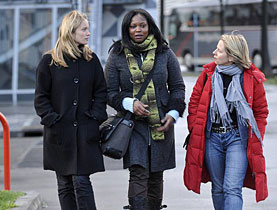
Despite countless international resolutions against women trafficking, victims in Europe remain largely unprotected, say two authors.
Corinna Milborn and Mary Kreutzer say that with only a month to go until Euro 2008 kicks off in Basel, the prostitution industry is getting into gear.
“We can already see how things are ‘warming up’ and how more and more women are being brought to the venues,” Milborn told swissinfo.
But women’s organisations in Switzerland are also making themselves heard. The coalition “Euro 08 against women trafficking” for example has launched an information campaign and is also running an internet site and hot line.
Euro 2008 is being co-hosted by Switzerland and Austria and runs from June 7-29.
The two authors, both from Austria, examined women trafficking from Africa, especially Nigeria, and forced prostitution in Europe for their book “Ware Frau” (Female goods: tracing modern slavery from Africa to Europe. Ecowin, 2008).
They spoke to victims, traffickers and people who pay for sex. In the book they also criticise current legislation and the police.
“The state as pimp” is how they provocatively denounce Europe. “The state system in Europe promotes women trafficking by turning down legal entry from Africa,” Milborn said. “What’s more, there are also corrupt officials who sell Visas.”
She admits that work is being done to combat women trafficking, but only as part of a larger criminal network – and with little consideration for the victims, who are frightened of speaking out or taking action against the traffickers.
Sold by families
Women trafficking is lucrative. More money can be earned by trafficking and forced prostitution than by trading drugs and arms.
The European Union estimates that every year some 120,000 women are smuggled into Europe, where they are forced into prostitution. In Switzerland the figure is 3,000.
Milborn and Kreutzer discovered that many victims in Africa come from rural areas where it is almost impossible to break out of the patriarchal family structure and find work.
“Many of them do not make their own decisions but are instead sold by their families,” Milborn said.
At first the authors were vexed by the fact that the pimping networks in Africa are predominantly controlled by women.
“But that does have a certain logic,” Milborn explained. “Continuing the suffering reflects the classic mechanism whereby beaten children turn into abusive parents.”
She points out that if an African prostitute in Europe wanted to get out of prostitution having paid off the smuggling costs, it would be impossible to find legal work.
“So she returns to the area of work that had previously hurt her, but this time as a pimp.”
Deportation
The route of human trafficking leads from Nigeria and other African countries directly to Italy.
Since the 1980s women trafficking has spread from Turin as a reloading point across all of Europe. Switzerland, which borders Italy, is particularly affected.
In Switzerland, as a result of measures against illegal immigration many victims of forced prostitution are criminalised as illegal immigrants and deported, according to the Swiss Information Centre for Women.
For that reason another Swiss women’s organisation, Terre des Femmes, is demanding that victims of human trafficking and forced prostitution be allowed to remain in Switzerland in every case. Until now this has only been possible if the victims are prepared to give evidence in court – something most are too scared to do.
swissinfo, Susanne Schanda
Prostitution is legal in Switzerland but prostitutes have to register with city authorities and health authorities and get regular health checks.
Pimping is illegal and uncommon: most prostitutes operate independently from small studios via mobile phones. They cannot display their wares.
Human trafficking in persons can carry a prison sentence of up to 20 years and coercing a person into prostitution is punishable with up to ten years in prison. Besides trafficking for the purpose of sexual exploitation, legislation is being amended to make trafficking to exploit labour and the removal of human organs punishable offences.
L permits were created in 1975 and allow women from countries that do not have a free labour accord with Switzerland to work as dancers in cabaret clubs for up to eight months.
A Swiss federal police report last year estimated that the sex industry generates SFr3.2 billion ($2.6 billion) per year in Switzerland.
The number of prostitutes working in Zurich rose 20% between 2003 and 2005 with 14,000 registered sex workers in the country in 2005.
The report also estimated that between 1,500 and 3,000 victims of human trafficking were in the country in 2005.

In compliance with the JTI standards
More: SWI swissinfo.ch certified by the Journalism Trust Initiative
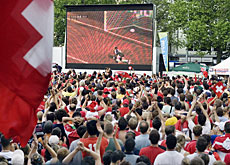
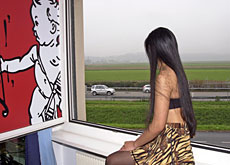
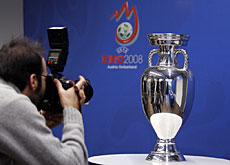
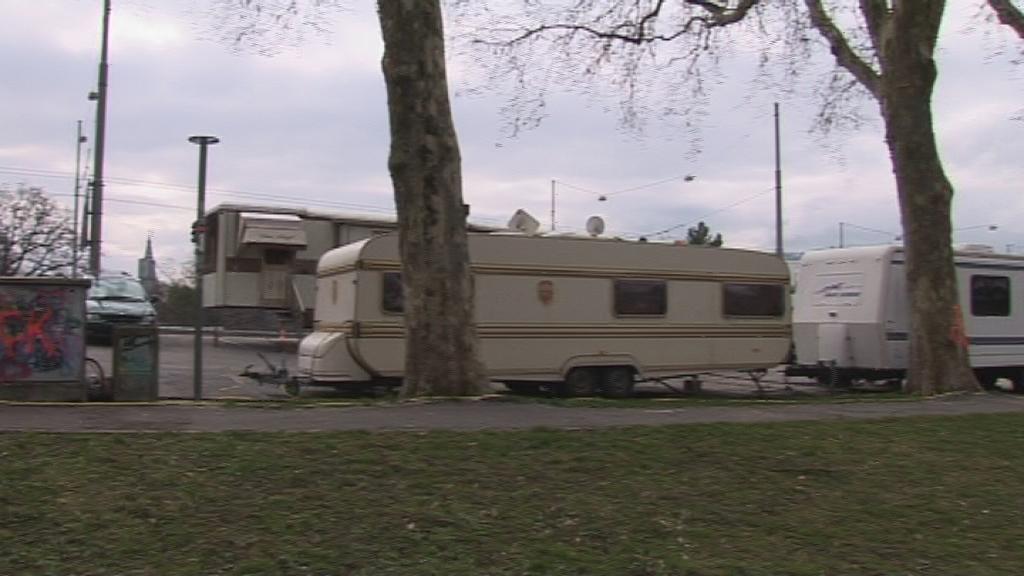
You can find an overview of ongoing debates with our journalists here. Please join us!
If you want to start a conversation about a topic raised in this article or want to report factual errors, email us at english@swissinfo.ch.